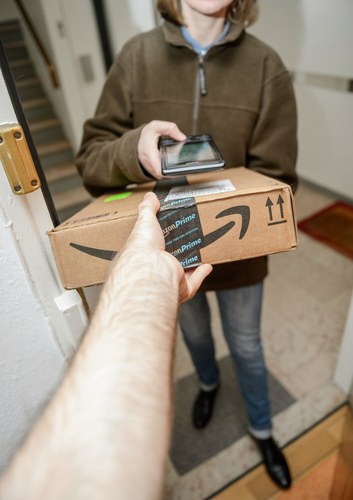Key Takeaways
- A postal service lawsuit asks if you can sue the U.S. Postal Service for intentional mail withholding.
- The case centers on landlord Lebene Konan’s claim of racial bias by postal workers.
- The “postal exception” may block lawsuits for lost or delayed mail.
- A ruling could let USPS dodge liability even for deliberate nondelivery.
- Such a decision could threaten mail-in voting and democracy.
Understanding the postal service lawsuit
The Supreme Court recently heard a case known as the postal service lawsuit. It asks how far USPS legal immunity goes. Specifically, can someone sue when postal workers intentionally withhold mail? The outcome could reshape accountability for lost or destroyed mail. Moreover, it may affect the reliability of mail-in voting.
What led to the postal service lawsuit
Lebene Konan owns rental homes near Dallas. She claims postal employees refused to deliver her tenants’ mail for two years. Konan alleges they disliked a Black landlord with white tenants. As a result, her tenants missed bills, medicine, and moved away. After dozens of complaints failed, she filed the postal service lawsuit.
Key points of the postal exception
Under federal law, the Postal Service enjoys an exception from most lawsuits. This “postal exception” bars claims for loss, miscarriage, or negligent mail handling. In other words, you generally can’t sue for lost or late letters. However, the core question in this postal service lawsuit is whether deliberate nondelivery falls under that exception.
Arguments in the postal service lawsuit
During oral arguments, Konan’s lawyers said intentional misconduct should not hide behind the postal exception. They stressed that non-delivery often means real harm. In modern times, online shopping and electronic bills make mail vital. Therefore, withholding mail can feel like theft. They argued that courts should allow claims for deliberate wrongdoing.
Justice Samuel Alito disagreed. He called intentional withholding too trivial for lawsuits. He suggested the exception covers even deliberate delays. Critics say his stance ignores how vital mail service has become. Specifically, they warn that a broad exception could shield misconduct that harms public trust.
Why the postal service lawsuit matters to democracy
This postal service lawsuit might seem far from elections. Yet, intentional nondelivery of mail-in ballots poses a clear threat. If USPS can’t face suits for willful ballot delays, some communities lose a vital voice. In states where mail-in voting plays a big role, the stakes feel very high. Courts worry that granting mass immunity could open the door to widespread ballot suppression.
Furthermore, the postal service handles millions of ballots each election. Even a small rate of deliberate delay can sway close races. Therefore, many legal experts view the postal service lawsuit as a landmark for voting rights. They hope the Court will limit the postal exception when serious harm is at stake.
Potential outcomes of the postal service lawsuit
The Supreme Court could rule in several ways:
• It might uphold full immunity, blocking all lawsuits. This would let USPS dodge cases of deliberate harm.
• It could carve out an exception for intentional misconduct. That would allow suits when postal workers act with malice.
• It might limit the exception only for discrimination claims, protecting constitutional rights. Each path sends a powerful signal about accountability.
A narrow ruling could still leave room for many claims. On the other hand, a sweeping decision for USPS immunity could shut the courthouse door on letter misconduct. Either way, this postal service lawsuit will shape how Americans hold the Postal Service accountable.
What comes next in the postal service lawsuit
After arguments, the justices will review briefs and reach a decision next year. Meanwhile, advocacy groups push electronic reporting and tracking to deter misconduct. Postal leaders claim they train employees to serve every customer fairly. Yet, critics argue that without the threat of lawsuits, bad actors face little consequence.
In addition, Congress could step in. Some lawmakers propose lifting the postal exception for intentional acts. They believe that accountability drives better service. If the Court rules against Konan, legislative fixes may follow. Otherwise, more Americans risk losing mail, packages, or ballots without recourse.
Lessons from the postal service lawsuit
This case teaches us that even ordinary services can carry huge risks. When we take mail for granted, we forget how vital it remains. Moreover, it shows how legal exceptions can shield misconduct. Therefore, citizens and courts must guard access to justice.
In a broader sense, the postal service lawsuit highlights how small actions can ripple through democracy. A single landlord’s fight against discrimination could set a precedent for fair voting. Thus, we must watch closely and learn as the Supreme Court makes its choice.
Frequently Asked Questions
How does the postal exception affect mail liability?
The postal exception shields the U.S. Postal Service from lawsuits over lost, delayed, or damaged mail. It bars claims arising from “loss, miscarriage, or negligent transmission” of postal items. Critics say it also blocks suits for intentional harm.
What is Lebene Konan’s case about?
Konan claims postal workers in Texas refused to deliver her tenants’ mail for two years. She alleges racial bias because the tenants were white and she is Black. She filed the postal service lawsuit after complaints to USPS failed.
Could this case impact mail-in voting?
Yes. If the Court upholds broad immunity, USPS might avoid lawsuits over intentional delays of mail-in ballots. That could open the door to deliberate ballot suppression and harm election integrity.
What might Congress do after the ruling?
Lawmakers could amend federal law to limit the postal exception for intentional misconduct. They could require USPS to face lawsuits for deliberate mail failures. Such changes aim to improve service and protect rights.
